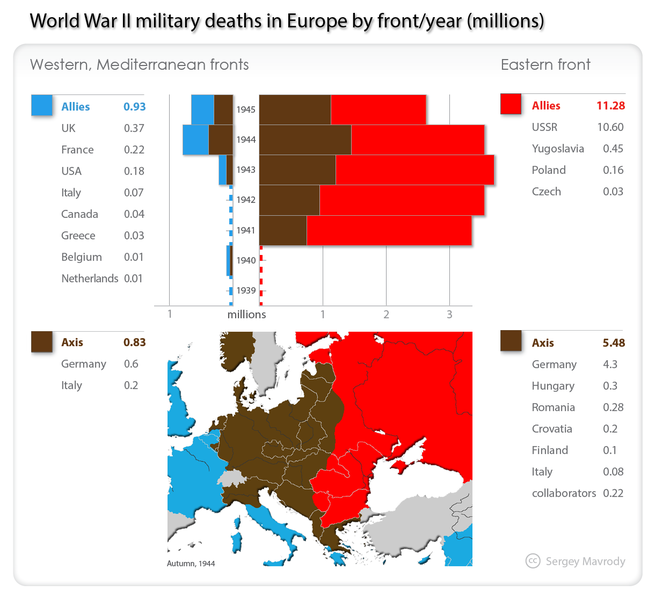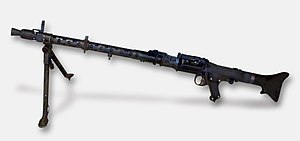The graph shows not only casualties but also the dimensions of the respective theaters.
Remarkable is that the German casualties are lower than the allies´ at any time and theater.
Objections have no place here, the western front was only built to relief the eastern front from the beginning.

Remarkable is that the German casualties are lower than the allies´ at any time and theater.
Objections have no place here, the western front was only built to relief the eastern front from the beginning.




